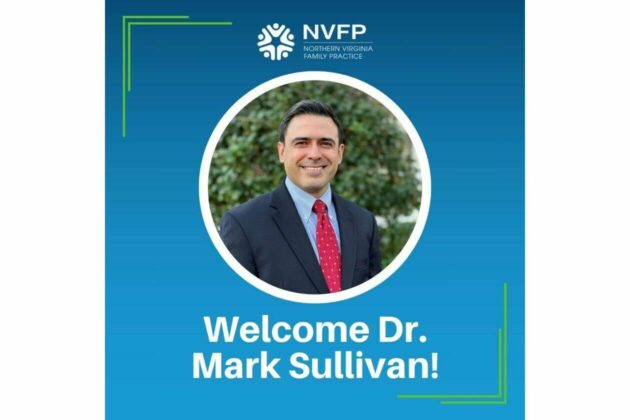This is a sponsored column by attorneys John Berry and Kimberly Berry of Berry & Berry, PLLC, an employment and labor law firm located in Northern Virginia that specializes in federal employee, security clearance, retirement and private sector employee matters.
We defend federal employees in proposed disciplinary actions. When a federal employee is facing proposed discipline it is important for them to speak with an attorney knowledgeable in federal employment law for legal advice and representation. This article outlines some brief thoughts for federal employees as they respond to proposed disciplinary actions.
Types of Proposed Discipline
Most proposed disciplinary or adverse actions for federal employees fall into 3 general categories for federal employees: (1) proposed suspension or demotion actions based on misconduct; (2) proposed removal actions based on misconduct; and (3) proposed removal actions based on performance deficiencies (i.e. a PIP).
Proposed Disciplinary Action
When a federal employee receives a proposed disciplinary action (suspension of 14 days or less) or an adverse action (suspension of over 14 days to removal), they should read over the notice very carefully. Each federal agency sets their own deadlines for submitting responses and requesting information relied upon and these deadlines are usually strict.
Along with a copy of the proposed discipline, when it is issued, the federal agency may provide an employee a copy of the materials in the evidence file (documents, reports, emails, recordings, video, photographs, etc) that they are relying upon in proposing the action (often referred to as the “information relied upon.”).
It is critical for a federal employee to request and obtain these materials prior to responding in writing or orally.
Response to the Proposed Disciplinary Action
It is important for a federal employee to not only submit a comprehensive written response, along with documentation (affidavits, character letters, statements or other evidence) refuting the charges and specifications or in providing arguments for mitigation, but also to request an oral response.
The Written Response
The written response to a proposed disciplinary action should address all of the allegations raised in the proposed discipline, in addition to providing records of the employee’s good performance/work records, and other commendations for use in potential reduction of any penalty.
While it is very important to both rebut or respond to the allegations, it is equally important to make arguments under the Douglas factors for purposes of reducing the penalty (e.g. reducing a proposed removal to a suspension).
The purpose of mitigation arguments are to show why the federal employee, even if some or all of the charges are true, should receive a less harsh penalty than proposed.
The Oral Response
In addition, the oral response presentation by the federal employee and his or her counsel should be straightforward and to the point. An oral response generally lasts anywhere between 30 minutes to an hour and a half depending on the nature and number of allegations made and the mitigation arguments that need to be presented.
A federal employee should generally not repeat or read from their written response, but rather highlight key arguments to the Deciding Official as to why the proposal is not warranted and to focus on potential mitigation arguments.
Mitigating Factors (Douglas)
While noted above, it is important to address mitigating factors in the response stage. Mitigating factors are just considerations that should warrant the reduction of any proposed penalty (e.g. good performance, no prior discipline, etc.).
Mitigating factors were specified in the case of Douglas vs. VA, 5 MSPR 280 (1981), which established the appropriate way to review a potential penalty in a disciplinary case. There are 12 Douglas factors, which can be found here.
The Decision
Following the response, the Deciding Official will issue a final decision on the proposed discipline.
Usually, when a decision on the proposed discipline has been made the federal employee they will be called into the Deciding Official’s office and given a copy of the decision, along with a description of any appeal rights in the decision.
Depending on the severity of the discipline issued by the Deciding Official, along with the underlying basis for it, a federal employee may have one of more venues in which to appeal. Some federal employees may be able to appeal a disciplinary action to the Merit Systems Protection Board (MSPB), the grievance/arbitration procedure, the Equal Employment Opportunity (EEO) process, or perhaps file a whistleblower defense.
Our law firm represents and advises employees on employment-related matters in the District of Columbia and Virginia. If you need legal assistance, please contact our office at (703) 668-0070 or at www.berrylegal.com to schedule a consultation. Please also visit and like us on Facebook at www.facebook.com/BerryBerryPllc.
Recent Stories

Unlike our competitors, Well-Paid Maids doesn’t clean your home with harsh chemicals. Instead, we handpick cleaning products rated “safest” by the Environmental Working Group, the leading rating organization regarding product safety.
The reason is threefold.
First, using safe cleaning products ensures toxic chemicals won’t leak into waterways or harm wildlife if disposed of improperly.
Second, it’s better for you and your family. Fragrant chemicals in surface cleaners can expose you to a similar amount of pollutant particles as a busy city road, New Scientist reported.

Northern Virginia Family Practice (NVFP), known for its comprehensive concierge healthcare, is thrilled to introduce Mark Sullivan, MD as the newest member of its family medicine team.
Dr. Sullivan brings a wealth of experience in family medicine, underpinned by a passion for delivering personalized, patient-centered care. He has a distinguished background in managing various medical conditions, emphasizing preventive care, health education and chronic disease management. Dr. Sullivan is adept at employing the latest medical research and technologies to enhance patient outcomes.
Beyond his medical expertise, Dr. Sullivan is committed to the well-being of his community, demonstrating this through his active engagement in local health initiatives and educational programs. His approach to medicine is holistic, focusing on integrating physical, mental and emotional health and patient education to achieve optimal patient wellness.
Dr. Sullivan is now accepting new patients at their newly established Arlington office at 2445 Army Navy Drive, Arlington, VA, 22206. The office, known for its patient-friendly amenities and state-of-the-art medical facilities, continues to provide the exceptional, personalized care NVFP is known for in its newly upgraded Arlington location.
ACFCU’s Free Homebuying 101 Webinar: Steps to Getting Pre-Approved
Are you ready to jump into homeownership, or have you started considering it but don’t know where to start?
Financial preparation is key when thinking about purchasing your first home and the first step to getting pre-approved. Join ACFCU for
Sweeney Todd
A victim of a gross injustice that robbed him of his wife and child, Sweeney Todd sets about exacting a terrible revenge on society.








